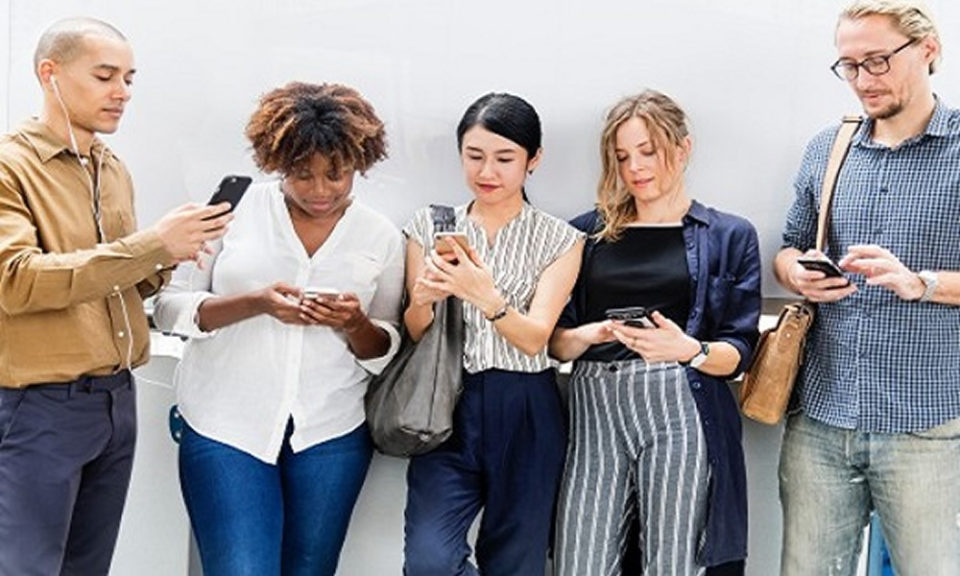The world of social media…
…is one where even though we can feel more connected, the reality is that we are becoming more socially isolated. With mental health conditions on the increase, is social media part of the solution, or part of the problem?
Social media, especially to the younger generation, is an acceptable part of their social interactions. While social networks can be a positive way to interact with family and friends, they can also cause feelings of loneliness; real life skills, such as the ability to hold a meaningful conversation, are becoming obsolete. Due to the fact we are having more digital conversations than ‘real’ ones, is it possible that these inventions are actually harming our personal development and affecting our mental health?
The Effects
Forming Real Connections
We all interact through conversations – the more authentic the conversation is, the stronger our connection with that person will be. Social media conveys inauthentic expression of feelings, where conversations are filled with ‘LOL’ and ‘LMAO’, meant to replace real laughter when very often the sender isn’t even smiling. Are we really so willing to replace the act of laughter, which releases feelings of happiness, with an artificial typed representation that could never convey those joyful emotions? That all important ‘art of conversation’ has almost become obsolete within social media, where true connection and understanding is lacking. Unfortunately, this has had an adverse effect on face-to-face interactions, where meaningful conversation is virtually impossible due to the number of times people check their phones. Connecting with real friends as opposed to virtual ones, is not only beneficial to our mental health but to our overall wellbeing.
External Validation of Self-Worth
Due to its nature, social media has become a platform where, young people in particular, seek validation from friends and peers. Their online image is tweaked, cropped and manipulated to present an impression of how they want to be perceived. Once the image is posted, validation comes in the form of how many ‘likes’ it has received and the nature of the comments that flood their inbox. Whether there are few or many likes, positive or negative comments, the result is ultimately a harsh experience for the original poster, with their self-worth and confidence now intrinsically tied to the opinions of online strangers. Education programmes in schools can assist children and young people in understanding the potential implications of using social media platforms. With this knowledge comes the confidence to use social media in a manner that does not impact negatively on their mental health.
“I fear the day that technology will surpass our human interaction.” – Albert Einstein
A Platform For Cyber Bullying
Cyber bullying takes place online and has many forums: e-mails, chat lines and social networking sites are but a few. It comes in many guises, with hateful emails, embarrassing images of the victim, and threatening, verbal messages the most common of the lot. They feed on a cocktail of hurt, stress, isolation, humiliation, and fear, which sadly, in some cases, can cause the individual to take their own life. The cyber bully does not fit the mould of the traditional bully, who is usually domineering and aggressive. Very often, this unseen enemy can be a friend, classmate or workmate, whose reasons can be jealousy, peer acceptance, revenge or even fun. This type of bullying has a non-stop agenda with high frequency levels of abuse over a short period of time. The results of such intensive bullying can last a lifetime, robbing the victim of ever reaching their full potential and needing intense therapy to be able to move on from how this type of abuse makes them feel.
Social Networking Addiction
If people are spending so much time on social media sites that it begins to interfere with their lives, they may have a social networking addiction. Many people use social media sites to avoid conflicts or issues occurring in their real lives. This form of escapism from reality can have very serious consequences on their mental health. Like any kind of addiction, it has to be recognised and managed through therapy, as suddenly cutting social media out of your life will produce withdrawal symptoms. Taking steps to enable the moderate use of social media in your life is an essential part of a recovery program. Removing social media devices from your bedroom at night will ensure you cannot check your various accounts for activity. Re-connecting with friends in healthy outdoor pursuits or any activity where you cannot use your social media device will have a positive impact on your mental health and wellbeing.

Social media platforms will continue to be seen as a positive tool that can be used to the benefit of all. However, we need to acknowledge the risks associated with this extremely useful medium and harness the potential benefits it can bring to our lives. A better understanding may result in the importance of its use in moderation, resulting in authentic human interactions and a deeper understanding of the art of conversation.

